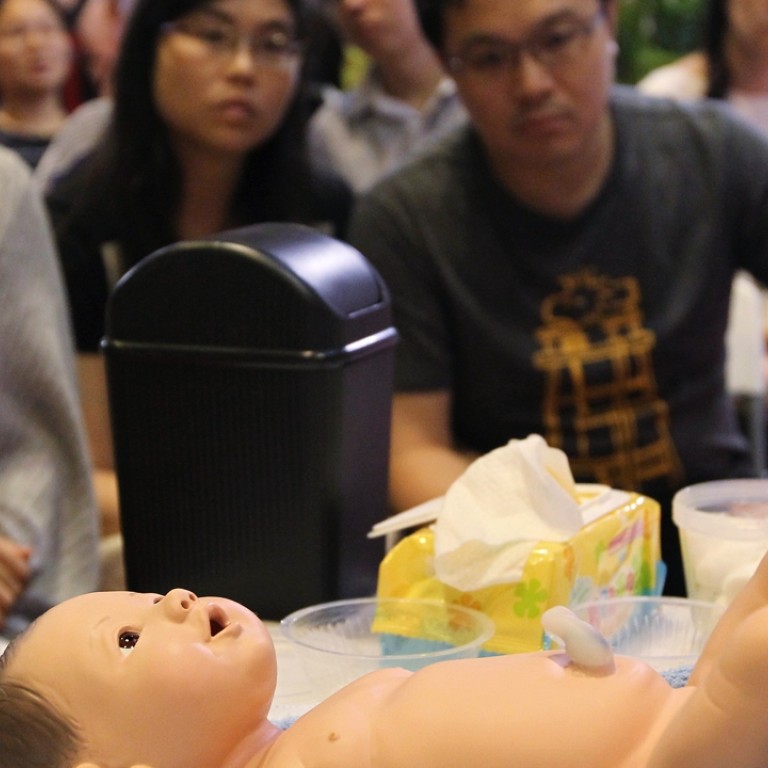
Is Hong Kong turning less entrepreneurial?
There is a perception that new business formation has been slowing for some time in Hong Kong. Are people becoming less entrepreneurial, and the economy less risk-taking, creative, and innovative? If so, why has this happened? And will it end?
The share of individuals in the workforce aged 30-39 who are employers is a good measure of the amount of new business being formed. Setting up a new business successfully requires both creativity (usually found among the young) and business acumen (usually acquired through high-level work experience). Individuals aged 30-39 are in their prime for combining both requirements.
The share of employers in this age group rose from 4.0 per cent in 1976 to a peak of 7.1 per cent in 1996, and subsequently declined to 3.6 per cent in 2011, according to 5-year figures from the various census years. Annual figures from the quarterly General Household Survey show the share peaked at 7.9 per cent in 1993, and by 2014 had declined to 2.5 per cent.
So what explains the decline of entrepreneurial activity in Hong Kong over recent decades?
One contributing factor is the 1997 Asian financial crisis. The subsequent economic recession lasted for 6 years, during which Hong Kong experienced a very severe economic shock comparable to the Great Depression of 1929-39 in the US.
But economic recession alone cannot be the primary explanation. The employer share among 30- to 39-year-olds with tertiary education peaked well before the Asian Financial Crisis and has never recovered.
In fact, the single most important factor is the changing demographic structure of the working age population.
A recent study of 83 countries found that entrepreneurship and demographics are strongly related. A decrease in the median age of the working age population by 3.5 years results in a 2.5 per cent increase in the entrepreneurship rate. This is a very large effect since the average entrepreneurship rate is only 6.1 per cent in these countries.
In Hong Kong, the median age of the adult working population increased from 32.0 in 1981 to 40.6 in 2011.
This shift is the outcome of the post-war baby boom. The share of young people rose in the 1960s and 1970s, but began to fall from the 1980s onwards. Projecting forward from 2016, the median age is expected to stabilise, although it will not be as young as it was in the 1960s and 1970s.
In the past decade, many young people in Hong Kong have felt that job and upward mobility opportunities are limited. Many others have been unwilling to take risks. Their pessimism and behaviour is largely a consequence of the evolution of Hong Kong’s post-war demographic age composition. But the future outlook is becoming less gloomy as the baby boom generation retires and the ageing of the workforce starts to end.
Another factor dampening entrepreneurial activity is the extremely severe shortage of labour, especially skilled and educated manpower, as the world and Asian economies expanded greatly from the 1980s.
Many businesses have paid ever-higher wages to recruit skilled and educated workers, making it more attractive for young people to work as employees rather than assume risks in starting their own businesses.
With the benefit of hindsight, the tightness and ageing of our workforce is the primary reason why the young in Hong Kong have become less entrepreneurial even amidst the rapid expansion of economic opportunities across Asia and the world. This could be reversed through an active policy to attract skilled and educated migrants and workers.
Slower economic growth, the rapid expansion of the retired population, and the ravages of a long economic recession have also fed the demand for a larger social welfare state, which informs the only broad consensus in the political agenda of the pan-democratic political groups.
In a sense, the political demand for universal retirement protection is a demand for parental support relief by the growing numbers of lower middle-income working individuals and families.
Richard Wong Yue-chim is Philip Wong Kennedy Wong Professor in Political Economy at the University of Hong KongRicha

